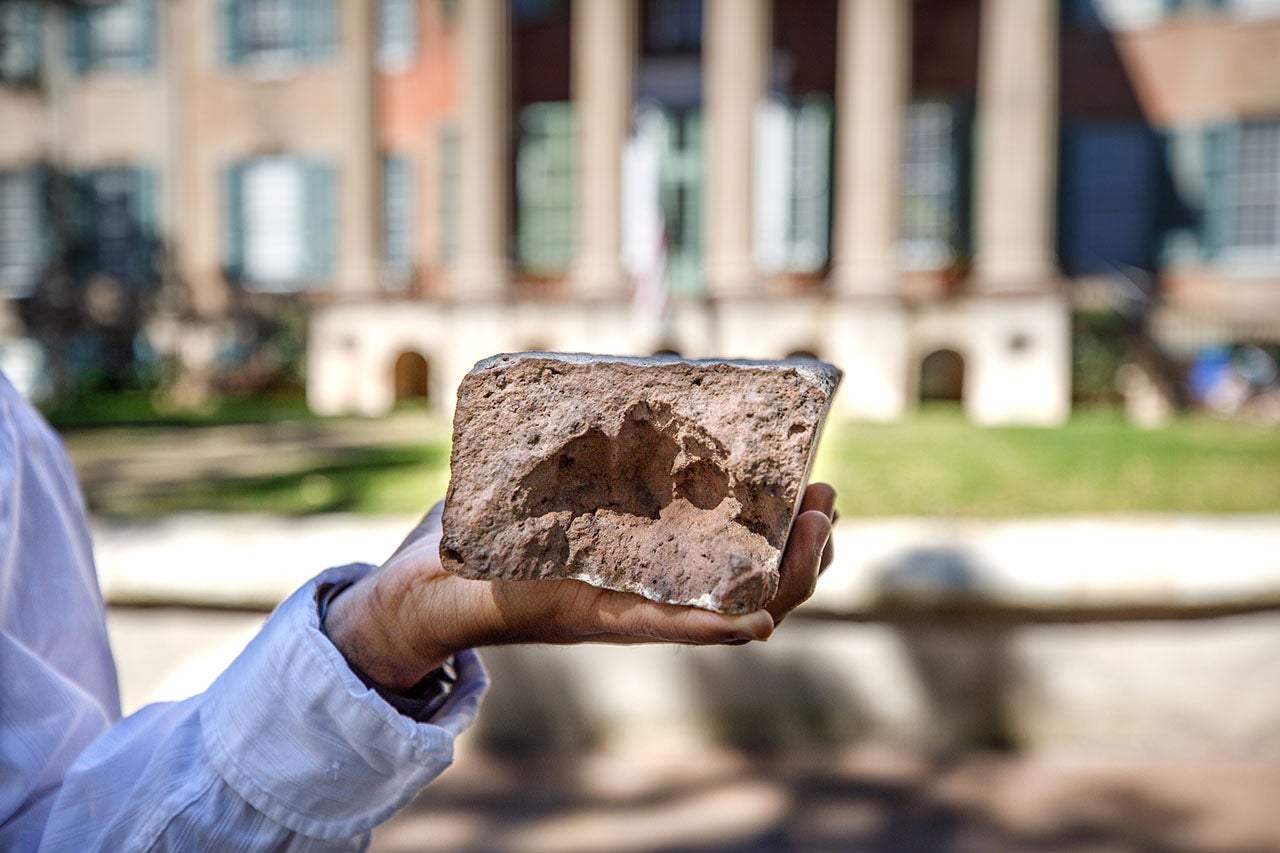The contributions of enslaved Africans to the architectural beauty of the College of Charleston’s campus are tangible in centuries old bricks marked with the actual fingerprints of those whose labor helped shape the institution’s buildings. Now, the entire Palmetto State can learn about this important history through the documentary If These Walls Could Talk, which will air on SCETV during the month of February.
Produced and directed by Charissa Owens, director of diversity training and education in the Office of Institutional Diversity, and Michael T. Owens, adjunct professor of English and assistant professor of African American Studies, the 40-minute documentary features the research and expertise of College faculty, staff and students highlighting the university’s complex history as well as efforts to create a more diverse and inclusive campus community. The documentary, which premiered in March 2021, is “blazing a trail for the College,” says Charissa Owens.
SCETV will feature the film as well as new discussions with faculty and students throughout the month of February on the following dates:
- ETV 7 p.m., Sunday, Feb. 2, 2022
- SC CHANNEL 8 p.m., Monday, Feb. 7, 2022
- ETV 3 p.m., Sunday, Feb. 13, 2022
- ETV World 2 p.m., Friday, Feb. 18, 2022
“The film is a very important initiative that speaks to the early presence of African Americans and the construction of the buildings that continue to present time,” says Bernard Powers, professor emeritus of history and director of the Center for the Study of Slavery in Charleston. “The film will be another instrument that will help the College become an even more dynamic physical learning environment.”
Charissa Owens agrees.
“This is what makes the College so unique compared to any other institution in the world,” she says. “Not only do we have the artifacts, locations, buildings and research, we have an institution that acknowledges those who signed the Declaration of Independence, and we are embracing and acknowledging the different perspectives, skills and talents that came together to make the institution what it is today.”
SCETV will feature the documentary along with commentary from Powers as well as Valerie Frazier, director of the College’s 1967 Legacy Program and associate professor of English, and two 1967 Legacy scholars — Miyah Jackson and Jaleen Newell — who talk with Charissa Owens about the impact of the film and why this history matters.
Scholars from the inaugural class of the 1967 Legacy Program, which supports the academic and professional success of Black students, were selected to participate in the discussion because of their shared interest in African heritage.
“Our new initiative is designed for the recruitment, retention and graduation of Black students at the College,” says Frazier. “Our scholars are going to be leaders of the next generation.”
For Charissa Owens, the inclusion of the 1967 Legacy scholars in the SCETV broadcast brings the story full circle.
“Not only have we tapped into the voices of our ancestors, but we’ve also tapped into the voices of future generations,” she says.




